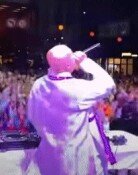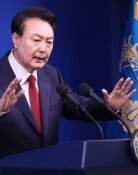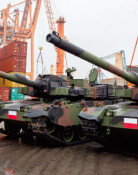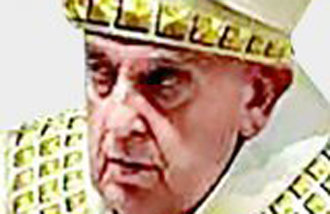Neo-Conservative Japanese in the Spotlight
Neo-Conservative Japanese in the Spotlight
Posted May. 13, 2003 22:18,
In the long politically indifferent Japan, Japanese are now paying attention to two 40-something politicians. The two politicians are 45-year old Japanese Defense Agency Director General Shigeru Ishiba and 49 year old former Deputy Chief Cabinet Secretary Shinzo Abe. Both made speeches which encourage rightist movements and have for the first time in many years, raised Japans neo-conservative flag.
They urged Japan to revise its constitution to expand the Japan Self-Defense Force`s activities, a taboo subject rife with controversy since the country`s defeat in World War II. They also used threatening words when referring to North Korea, claiming Japan`s national interests are more important than ever.
They`ve become popular in Japan, a nation sick and tired of its existing politics, and have come into the spotlight as fresh new blood. There is even the view that either might become Prime Minister some day.
Coincidently they entered politics at around the same time. Abe took a role of holding North Korea in check as a tough political figure when he accompanied Japanese Prime Minister Junichiro Koizumi on a visit to North Korea last autumn. After the visit, the media started paying attention to the negotiations on kidnapped Japanese.
Ishiba was also designated just after Koizumi`s visit to North Korea. He was president of a union of members of the Diet for saving kidnapped Japanese by North Korea. His designation as Japanese Defense Agency Director General implies that Japan has decided to take a tough stance towards North Korea.
They are also both 2nd and 3rd generation political families. Abes father is Abe Shintaro, Secretary General of the Liberal Democratic Party and is the only grandson of former Prime Minister Kishi Nobuskei. Ishiba was governer of Tottori prefecture. Former Prime Minister Kishi was the figure who attempted to revise the draft version of the peace constitution` written by MacArthur, Commander in Chief of U.N. forces just after the defeat of Japan in World War II.
Both worked for private companies before graduation from university, then entered politics backed up by their families. Ishiba is a senior member of the Diet, who set a record of being its youngest member in 1986. He has been consecutively elected five times ever since.
Ishiba insists that Japan can make pre-emptive strikes if necessary. This concept is beyond Japan`s principles which make provisions only for its defense. The Peace Constitution` stipulates that Japan will never attack neighboring countries ever again. However, Ishiba has an extremist view. The constitution should be changed as it was made by the U.S. when they were occupying Japan, He said. He even said when visiting South Korea that the missiles of North Korea are for attacking Japan rather than South Korea, implying that Japan should be armed again for its safety.
Abe also asserted in a symposium held in Tokyo on May 12 that Japan`s concept of defense should be corrected. He does not give in to matters domestically as well as diplomatically and is even well known among rightists as a man who acts according to his convictions. He leads in the tough stance towards North Korea on the kidnapped Japanese issue.
Unless the rest of the kidnapped Japanese return home, no negotiations will be held between North Korea and Japan, Abe said.
He once drew very strong criticism among neighboring Asian countries as he said just before the Korea Japan 2002 World Cup that Japan may give up three principles concerning nuclear weapons (We will not make, keep and buy nuclear weapons).
Hun-Joo Cho hanscho@donga.com
Headline News
- Korean president faces debate limitations unlike U.S. counterpart
- KEPCO's first quarter profits failed to meet market expectations
- Teenagers are left out of discussions about national pension
- 2 consultative bodies submit minutes regarding increasing number of medical students
- Woo Sang-hyuk's rivalry and friendship transcend borders







